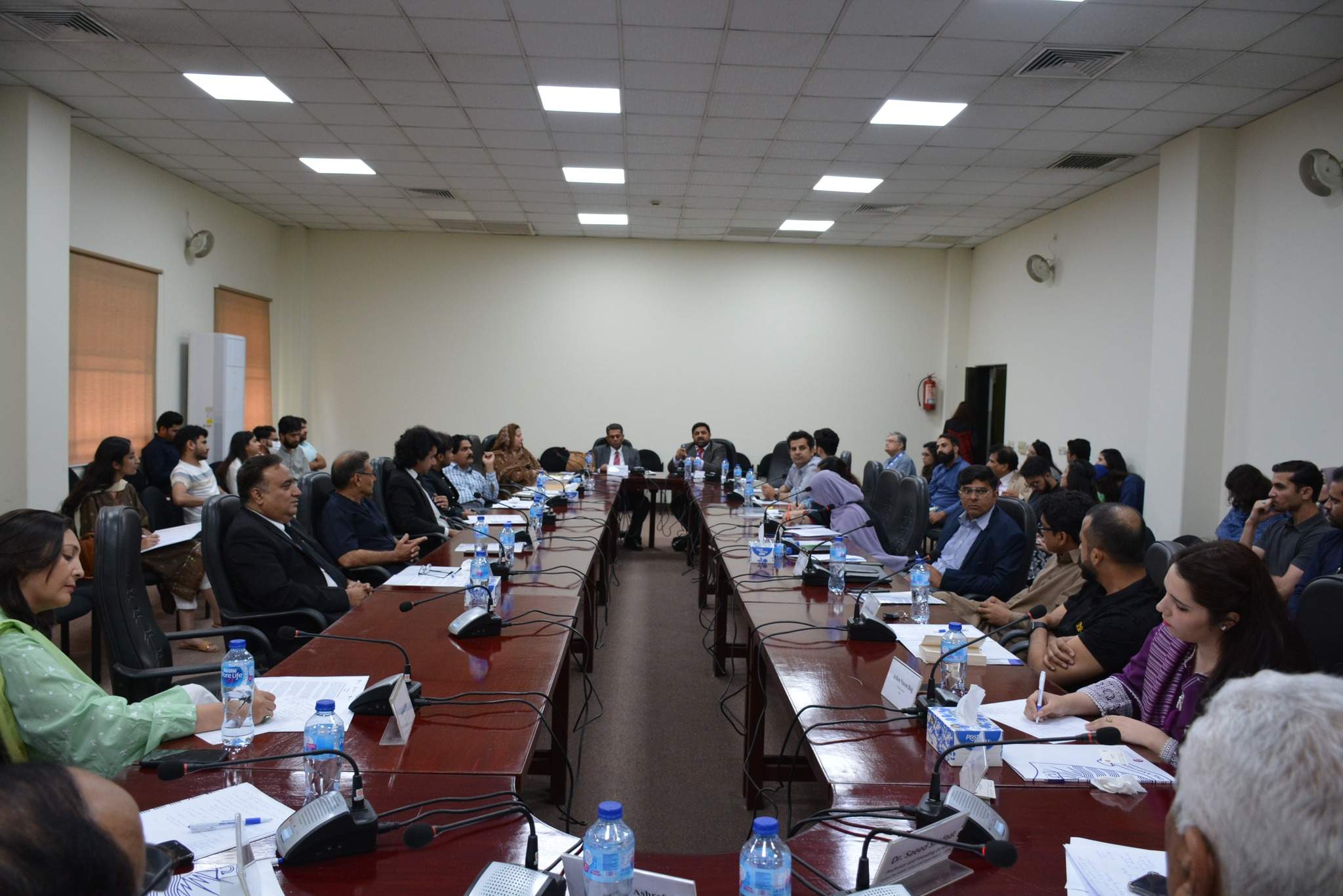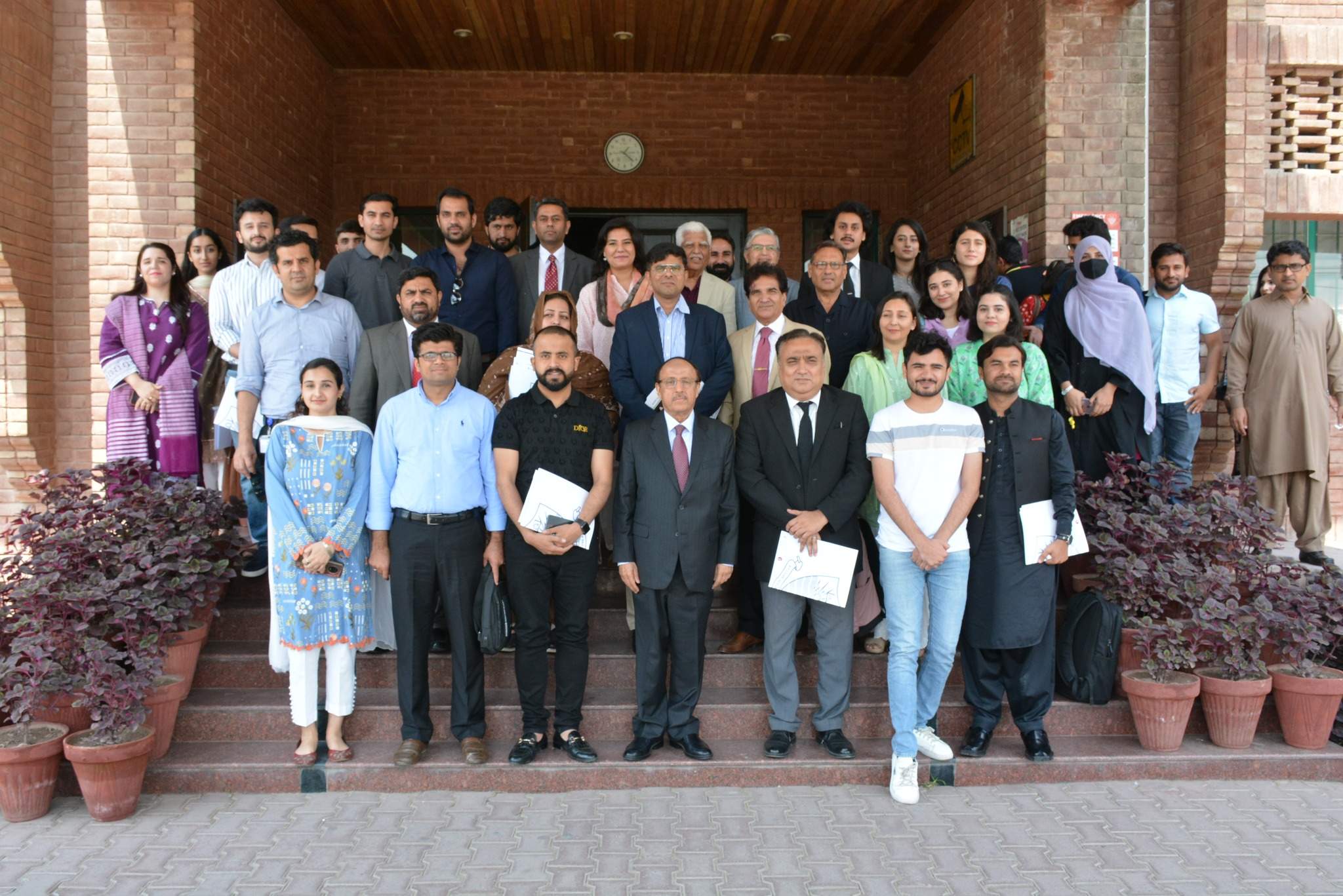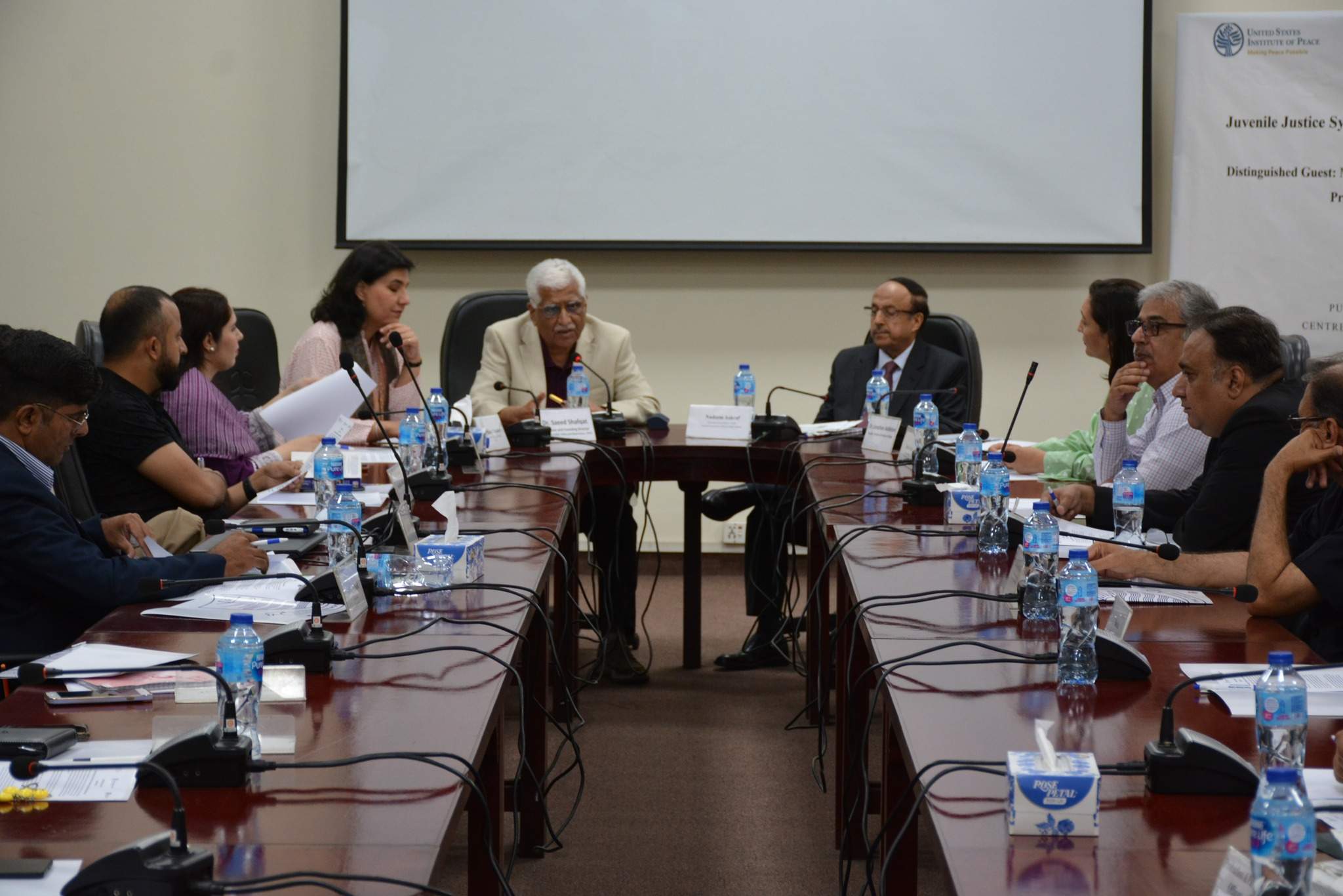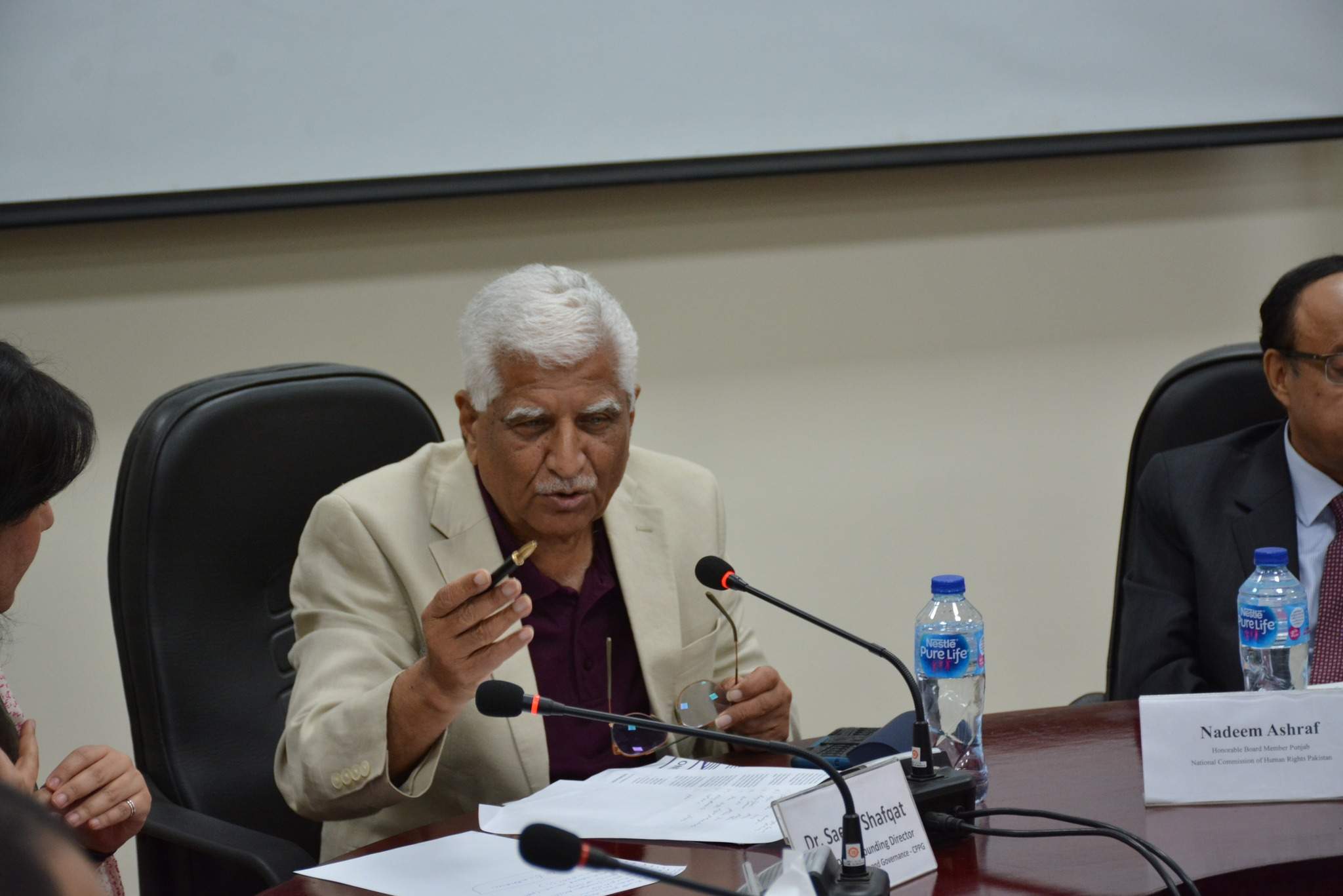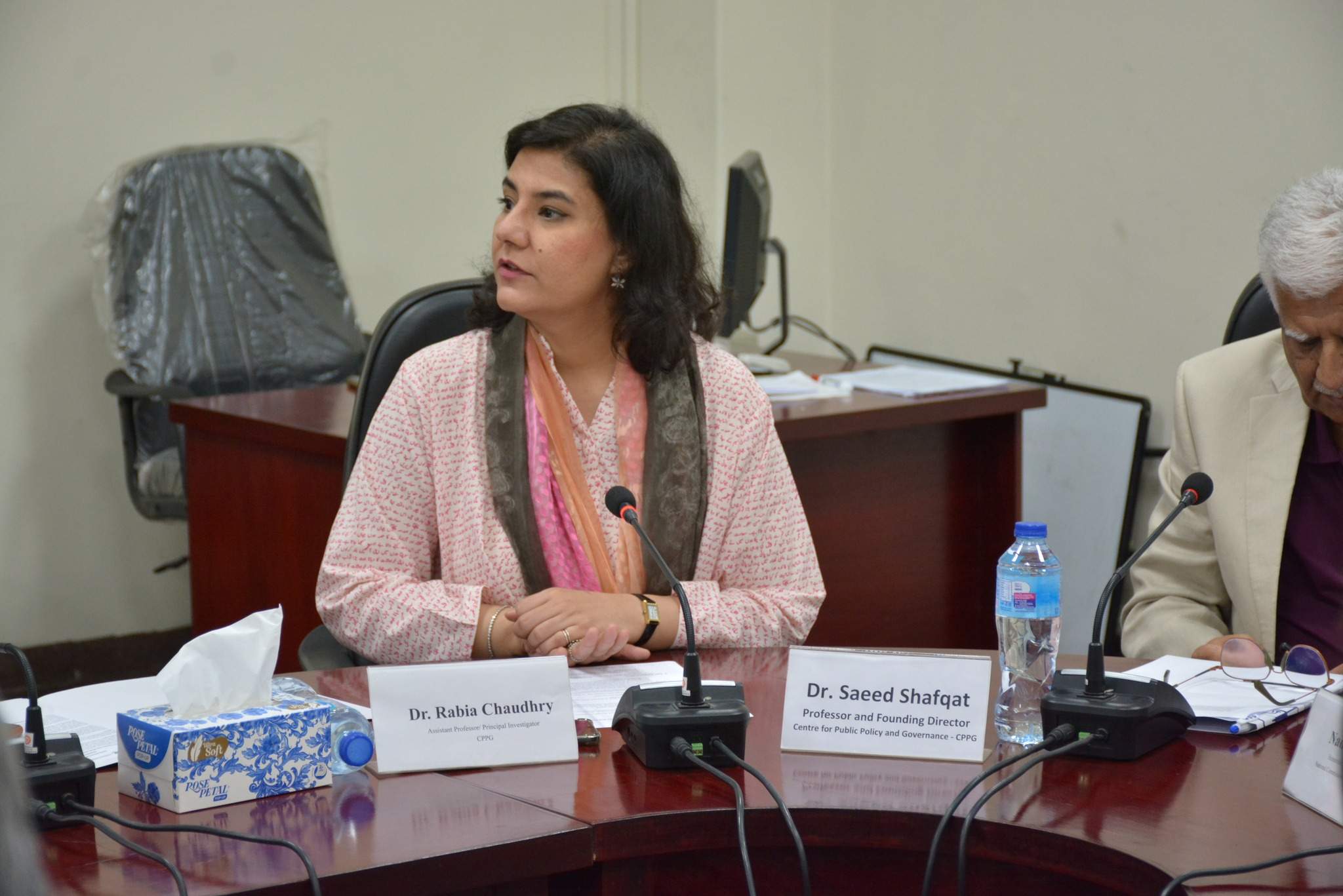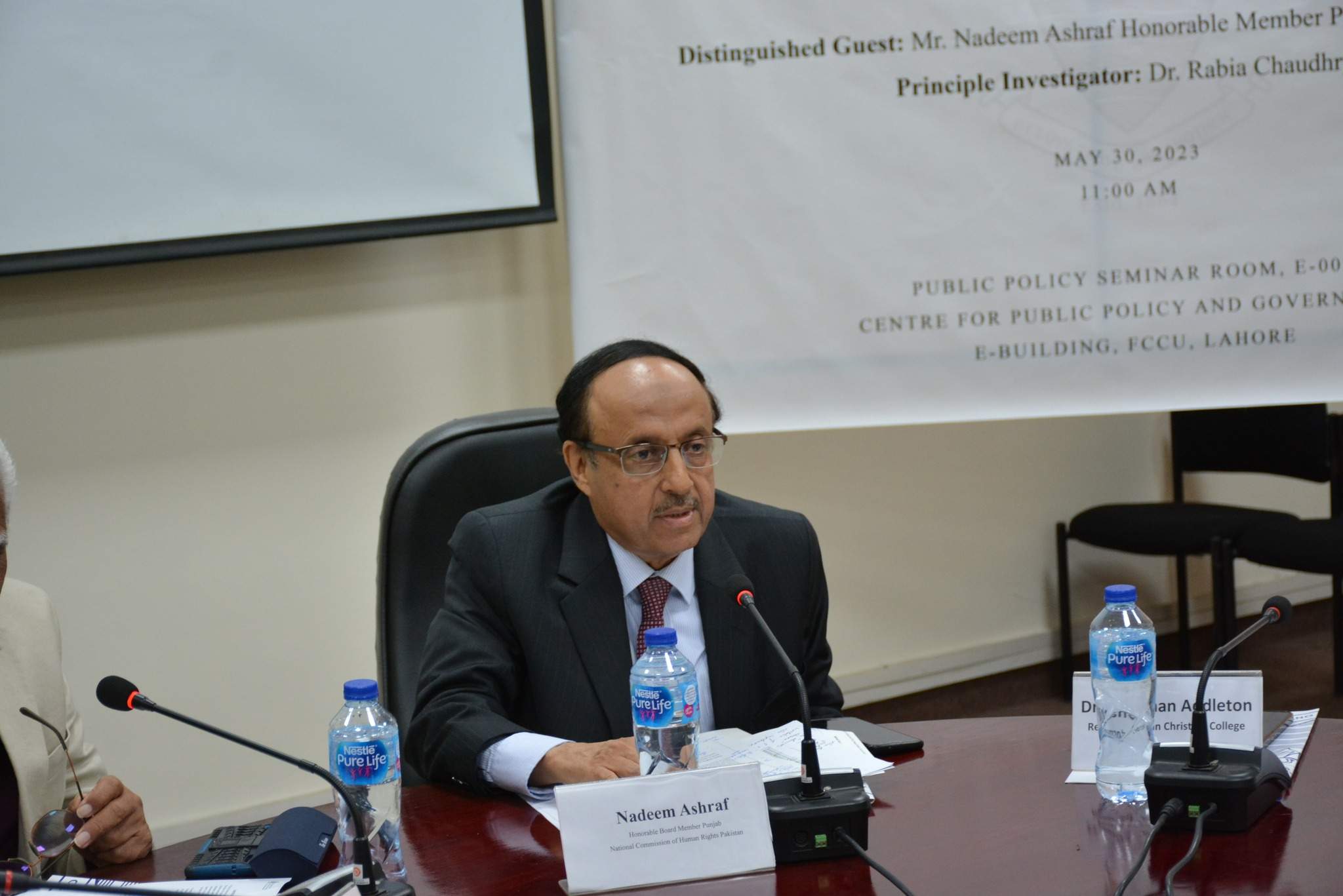
Juvenile Justice System Act 2018: Assessment, Analysis, and Capacity Building
Policy Dialogue
Past Event
May 30, 2023 - 11:00 am |
May 30, 2023 - 4:00 pm
Nadeem Ashraf
CPPG FCCU
Upcoming Event
On May 30th, 2023, the Centre for Public Policy and Governance (CPPG) at Forman Christian College (A Chartered University) organized a Policy Dialogue on the “Juvenile Justice System Act 2018 (JJSA): Assessment, Analysis, and Capacity Building.” The event was part of an ongoing project funded by the United States Institute of Peace (USIP) and aimed to critically examine the Juvenile Justice System Act (JJSA) and its recent amendments. The Policy Dialogue’s primary purpose was to conduct a comprehensive assessment of the insights and perspectives of stakeholders involved in formulating and implementing the JJSA.
Dr. Saeed Shafqat, Professor and Founding Director of CPPG, served as the moderator, introduced the distinguished guest speaker, Mr. Nadeem Ashraf, Honorable Member Punjab, National Commission of Human Rights Pakistan. Following Dr. Saeed Shafqat’s opening remarks, the principal investigator of the project, Dr. Rabia Chaudhry, who along with a small team of researchers had been conducting research on the subject for almost a year, was invited to present her preliminary findings and recommendations. To achieve these objectives, an extensive analysis was conducted, evaluating existing laws and practices related to the Juvenile Justice System Act. The effectiveness of current rehabilitation methods, particularly in equipping juvenile delinquents with the necessary skills and education for successful reintegration, was also assessed. Dr. Chaudhry highlighted several key aspects of the JJSA, identifying the challenges and deficiencies in its implementation.
The preliminary findings of the project included the definition of a child under the act, the complexities involved in determining a child’s age, the specialized investigation procedure, the role of probation officers as outlined in the act, and their limited capacity to handle all cases in Punjab. She was emphatic in pointing out the lack of adequate Detention and Rehabilitation Centers for juveniles and the need for alternative detention options. Notably, she pointed out the ineffective implementation of the diversion process, which had not been taken up by any government department. Other topics discussed encompassed the establishment of Juvenile Justice Committees (JJC), the re-categorization and redefinition of offenses, separate Juvenile Courts, special provisions for the protection of female juvenile offenders, the social aspects of the research, and the conditions in jails.
The event sought to identify gaps and contradictions between the legislation and its practical application, focusing on three main questions: the adequacy of existing legal infrastructure in safeguarding juvenile perpetrators, measures taken to enhance the quality of life for incarcerated juveniles and reduce recidivism rates, and the effectiveness of rehabilitative methods in facilitating their reintegration into society.
The Policy Dialogue engaged various stakeholders, including representatives from the Probation and Parole Office, Social Welfare Department, Home Department, Child Welfare Department, Prison Authorities, child protection NGOs, vocational and training institutes, and the Literacy Department. Their expertise and insights contributed to the development of evidence-based recommendations aimed at bridging the gap between the intentions of the law and its practical implementation.
Dr. Chaudhry’s presentation, analysis and findings evoked stimulating response from the stakeholders. While the discussion, feedback will be duly incorporated in the Final Report. Some of the key suggestions included capacity building for officials responsible for juvenile cases, psychological counseling for both juveniles to aid their reintegration into society, and addressing the prevalent drug problem in the country. In conclusion, the Policy Dialogue provided a platform for stakeholders to critically analyze and evaluate the Juvenile Justice System Act and its implementation. The Principal Investigator and Dr. Shafqat thanked the participants for their candid remarks and valuable inputs that will help in improving the quality and contents of the report.


